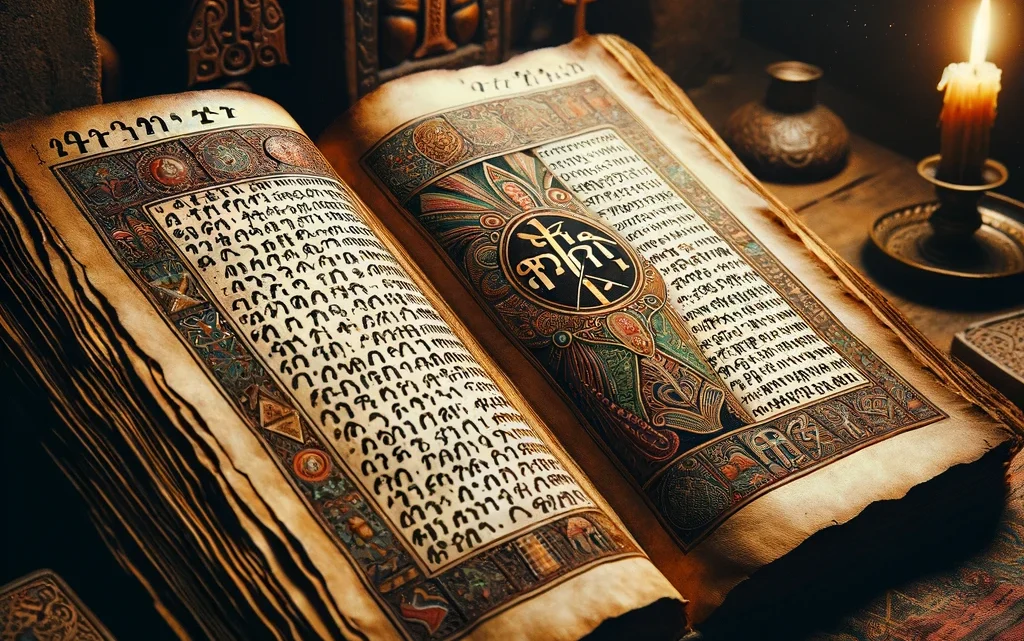“Unveiling Ancient Truths: The Book of Jubilees and Its Biblical Foundations”


The Book of Jubilees, often referred to as the “Lesser Genesis,” is revered within the Ethiopian Orthodox Tewahedo Church and serves as a fascinating extension of biblical stories. This pseudepigraphal text, composed in the 2nd century BCE, offers a retelling of events from Genesis and Exodus, providing deep insights into the observance of laws and festivals from ancient times.
#### Historical Context
Written originally in Hebrew, the Book of Jubilees survives fully only in Ge’ez, a sacred language of Ethiopian Christianity. Its rediscovery in the 19th century opened scholarly debates on its origins and impacts on Jewish religious thought.
#### Content and Themes
Jubilees recounts biblical history from Creation to the time of Moses, segmented into jubilee cycles of 49 years. It emphasizes religious observance, mirroring Genesis 2:3 where the sanctity of the Sabbath was first established, and Exodus 12 regarding the Passover. It also highlights the role of angels and divine interventions, akin to the angelic encounters in Genesis 18 with Abraham.
#### Discovery at Qumran
The fragments found among the Dead Sea Scrolls at Qumran suggest that Jubilees was authoritative in some Second Temple Jewish sects, which valued its detailed rules and calendars akin to Levitical laws found in Leviticus 25.
#### Biblical References and Interpretations
– **Creation and the Sabbath**: Genesis 2:1-3 is echoed in Jubilees’ emphasis on Sabbath observance.
– **Noah and the Clean and Unclean**: The distinctions in Genesis 7:2 between clean and unclean animals are expounded in Jubilees.
– **Abraham’s Covenant**: Jubilees expands on Genesis 17, emphasizing the importance of circumcision as an eternal covenant.
– **The Festivals**: Leviticus 23’s outline of Jewish festivals is detailed further in Jubilees, prescribing how these should be observed correctly.
#### Significance in Ethiopian Christianity
In Ethiopia, Jubilees is not merely historical; it is integral to faith practice, influencing everything from liturgy to daily life. Its canonical status underscores its import, paralleling the reverence of the Torah in Judaism.
#### Modern Relevance
Jubilees continues to be a key text for understanding early Jewish interpretations of the Torah. It offers a window into how ancient communities understood their relationship with the divine and with each other, grounded in the scriptural traditions of the Old Testament.
#### Conclusion
The Book of Jubilees serves as a bridge between the canonical texts and the deeper spiritual practices of ancient times. For modern readers, it offers a richer understanding of biblical laws and narratives, inviting a reflective exploration of our spiritual heritage.










